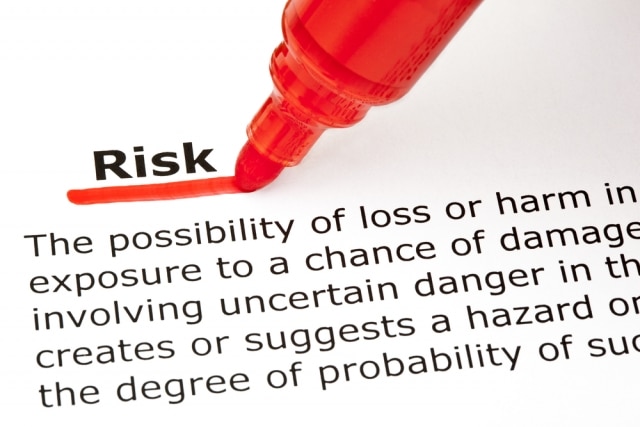ExxonMobil, the nation’s largest oil and gas company, will begin disclosing risks associated with shale drilling and fracking to investors, in response to a long-running campaign by a coalition of shareholders.
In February, the groups of investors in a handful of major oil and gas companies including Exxon, Chevron and EOG Resources, demanded for the fifth year in a row more information from companies about the risks associated with fracking. The motion won the support of over 30 percent of Exxon shareholders — an unusually strong showing for a shareholder resolution.
On Thursday, the investors’ coalition announced that Exxon was the first company to agree to disclose risks. The company will publish a report by September that will describe fracking’s potential harm to air quality, water and roads, as well as risks associated with the chemicals used. Exxon agreed to follow criteria identified in a 2013 report, cited by the coalition and called Disclosing the Facts: Transparency and Risk in Hydraulic Fracturing Operations, in which Exxon received a failing grade for its transparency.
“We have seen the significant risks that come from hydraulic fracturing activities,” said New York City Comptroller Scott M. Stringer, custodian and investment advisor for the New York City Pension Funds’ $144 billion in assets, including $1.02 billion in ExxonMobil stock. “Corporate transparency in this arena is truly necessary for assessing risk and ensuring that all stakeholders have the information they need to make informed decisions.”
However, Exxon’s first report will not disclose data on methane leaks – information that shareholders argued strongly should be made public. Natural gas is primarily made of methane, a potent greenhouse gas that has climate changing effects over 80 times more powerful than carbon dioxide during the first two decades after it escapes to the Earth’s atmosphere.
Some environmentalists question whether Exxon’s report will represent much of a step forward. Bloomberg reported that much of the company’s disclosures “will be comprised of data and analyses Exxon has published in publicly available filings or the corporate website,” citing an interview with Exxon spokesperson Alan Jeffers.
Shareholder groups say they will vigorously monitor the quality of Exxon’s report. “It does feel like Exxon is changing the way it’s doing business,” Danielle Fugere, president of shareholder coalition member As You Sow, told the Wall Street Journal, adding that if Exxon’s disclosures are incomplete, “we did reserve our right to bring a resolution next year.”
Researchers have long criticized the quality of the data the oil and gas industry voluntarily makes public. After intense pressure from Congress, environmentalist and the media, the oil and gas industry published a website called FracFocus that provides information on chemicals used by the industry and ostensibly represented a step towards transparency. But a Harvard Law School assessment last year of the website concluded that the site has “serious flaws,” is not vetted, and should not be relied upon by the government or the public.
Still, Thursday’s move represents a major shift in Exxon’s approach to talking about risks. In 2011, in response to investor complaints that the company failed to supply sufficient information about fracking risks, Exxon CEO Rex Tillerson flatly responded “You’re just wrong.”
Mr. Tillerson, it should be noted, has first-hand experience with the risks associated with the shale gas boom. In Februrary, he made headlines for joining a lawsuit opposing the unsightly expansion of his own industry’s infrastructure into his wealthy Bartonville, TX neighborhood, citing the “noise nuisance and traffic hazards” as a possible threat to property values.
Energy industry consultants have long warned the drilling industry against a strategy that downplays the hazards of oil and gas extraction. For years, the industry contended that there were no documented cases where fracking contaminated groundwater, despite significant proof to the contrary.
“The public is skeptical of anything we say,” Tisha Conoly-Schuller, President and Chief Executive Officer of the Colorado Oil & Gas Association warned executives gathered at a shale industry conference in Colorado in 2011. Indeed, 49% of Americans surveyed by the Pew Research Center opposed fracking in September 2013, a sharp spike from the 38% opposed in March of that year.
Exxon is also changing its tone on the broader risks associated with climate change. This week, Exxon also released a report delving into the potential concerns that climate change poses for the company’s investors and how the company plans to manage those risks. That report, issued on Monday, was also the result of shareholder activism by As You Sow.
The jury is out on whether Exxon’s recently announced report is a publicity stunt or an actual reckoning with the need for public disclosure of risks.
“We understand people have concerns. This activity (fracking) is somewhat new and not understood in some parts of the country,” Exxon spokesman Alan Jeffers told Reuters. “People want more information and the more they know, the better.”
Photo Credit: Definition of the word Risk, underlined with red marker, via Shutterstock.
Subscribe to our newsletter
Stay up to date with DeSmog news and alerts






